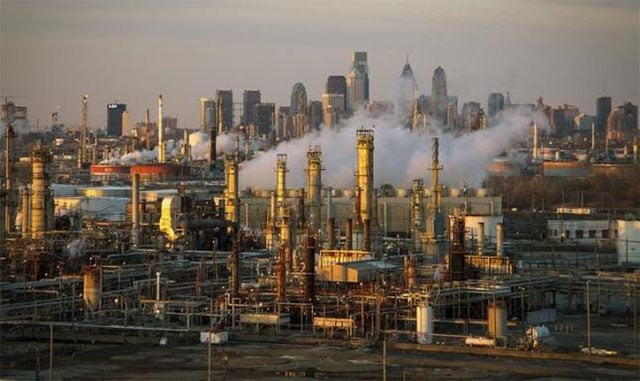Banks reluctant to open LCs for oil import
OCAC seeks intervention of SBP chief as oil firms have insufficient credit lines

The Oil Companies Advisory Council (OCAC) has once again approached the State Bank of Pakistan (SBP) governor, requesting him to intervene following reluctance of banks to open Letters of Credit (LCs) for oil import in the wake of rapidly rising crude prices.
The oil industry group, comprising refineries and oil marketing companies (OMCs), has written a letter to the central bank governor in the backdrop of Russia-Ukraine conflict that has sent oil prices soaring.
Earlier, the OCAC had informed the SBP governor that commercial banks had declared oil companies as “risk entities”. As a result, the banks were not willing to extend financing to the industry, which was struggling to import oil amid high prices.
It also warned of depleting high-speed diesel (HSD) stocks and presented a plan to boost reserves.
In a recent letter, the OCAC said that oil companies had insufficient credit lines as commercial banks were not ready to open LCs for oil import.
“As Pakistan is heavily reliant on oil import, the oil companies have to import petrol, diesel and jet fuel to meet local demand,” it said, adding that banks should play their role in facilitating OMCs for oil import.
In view of rising oil prices, the capital requirement of OMCs has increased, the OCAC said. Moreover, on account of regulatory lags in adjusting consumer prices in line with import prices, the credit lines of OMCs have become stretched.
Keeping in view the situation, it requested the SBP governor to advise the relevant banks to facilitate OMCs for keeping fuel supply intact.
In the first half of financial year 2021-22, sales of petroleum products in the country increased 24% compared to the corresponding period of previous year. Motor gasoline (petrol), HSD and furnace oil consumption went up 14%, 27% and 38% respectively.
This growth is primarily attributable to the surge in economic and trade activities, growth in large-scale manufacturing, higher HSD demand from the agriculture sector, robust growth in automobile sales, rising tourism and reliance on some furnace oil-based power plants due to the need for increase in electricity generation.
Owing to the limited refining capacity in the country, the remaining demand for petroleum products is met through imports. During FY21, the OMCs imported 10 million tons of petroleum products valuing at $4.8 billion.
The working capital requirement of OMCs and refineries is increasing following rupee depreciation, rise in international crude oil prices and higher domestic demand.
Published in The Express Tribune, March 2nd, 2022.
Like Business on Facebook, follow @TribuneBiz on Twitter to stay informed and join in the conversation.


















COMMENTS
Comments are moderated and generally will be posted if they are on-topic and not abusive.
For more information, please see our Comments FAQ